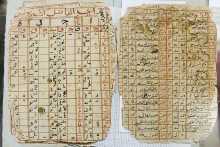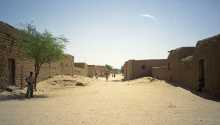The records of the past are constantly under threat, whether it come from people burning books, those who try to rewrite the past or archaeological sites that get caught in the crossfire of petty wars. Many historical locations, especially those of a more distant past, were built as fortresses originally and thus make perfect places for soldiers to hide during their fights. This often brings buildings which are thousands of years old under fire from guns and artillery. The latest archaeological wonder to come under siege is the city of Timbuktu, located in northern Mali.
Mali has been a hotbed of violent activity as of late. A coup recently overthrew the government and for many months there have been skirmishes in the north between government troops and separatists who have been attempting to establish their own independent state. When the coup hit Mali, forces in the form of Tuareg rebels and Islamic fighters took control of Timbuktu.
It may seem like a small matter when compared with the number of people who have lost their lives in these conflicts and the massive
starvation which is occurring in Africa right now, but preservation of such historical sites is still important in the long run. Long after the people have gone, there must still be the evidence to prove they were once there. Timbuktu is an important part of both African and Islamic history and keeping it intact is essential to the maintaining of both groups’ identities.Timbuktu has many mosques and cemeteries that date back as far as the 5th century, as well as a
collection of irreplaceable Islamic manuscripts that number in the hundreds-of-thousands. Many of the manuscripts have already been destroyed, though efforts by scholars have been underway for some time to record them for prosperity.The site has already come in danger due to neglect and now that militant factions have taken hold, there are risks of important artifacts being destroyed for political or religious reasons. Rebel interference may further hamper the efforts of scholars to record the important manuscripts, resulting in a potentially catastrophic loss of history.

